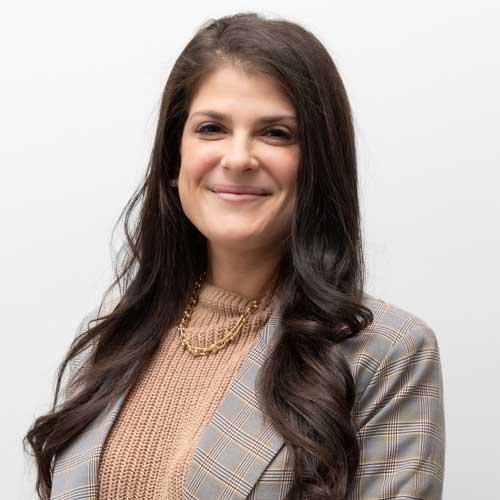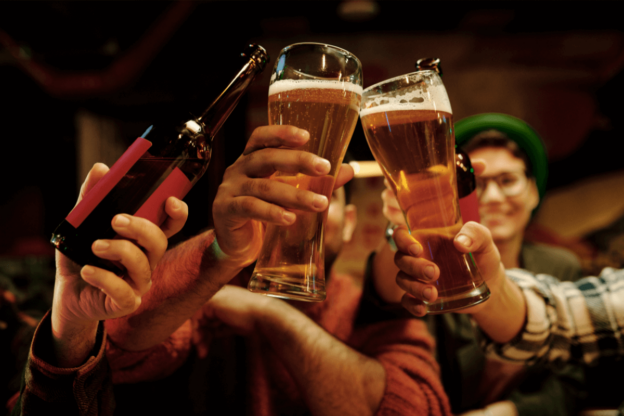Alcohol use disorders are a serious concern in the United States — as many as 29.5 million people over the age of 12 deal with this addiction.[1] However, a concerning pattern of problematic drinking called binge drinking is blurring the line between alcoholism and casual drinking. But is occasional binge drinking the same as alcoholism? Learn more from our alcohol addiction rehab in Greenwich.
What Is Occasional Binge Drinking?
Occasional binge drinking is a pattern of drinking that quickly brings blood alcohol concentration (BAC) levels to 0.08% or more. One in six adults in the United States engages in binge drinking.[2] This behavior is more likely to occur in younger adults, but it’s a problem that runs the gamut, age-wise.
Getting BAC levels to 0.08% or higher requires drinking significant amounts of alcohol in a short time. For women, it typically means having four or more drinks in two hours, while for men, it means five or more drinks in that period.
Of course, it’s not just your gender but your height, weight, and health level that can impact how fast alcohol affects you. For example, a woman who is six feet tall won’t feel the effects as quickly as a shorter woman.
Binge drinking is understood to be a behavior, not an illness, but it can still put your health at risk. You can suffer blackouts as well as overdoses.
Overdosing is one of the most significant risks that even occasional binge drinking poses. Alcohol is a central nervous system depressant, which means it affects everything from your breathing to how fast your heart beats and what your body temperature is. Some of the symptoms of an alcohol overdose[3] include:
- Clammy skin
- Slow heartbeat
- Slow breathing
- Seizures
- Difficulty staying conscious
Because alcohol also dulls your gag reflex, people run the risk of choking on their vomit. An overdose can result in brain damage or death.
Understanding Alcohol Abuse and Alcoholism
A substance use disorder is a brain disorder in which you compulsively seek out and use substances like alcohol or drugs. You can have this condition if you continue to drink despite all of the negative consequences drinking alcohol causes.
Alcohol has a powerful effect on the brain. It blunts negative feelings and floods the reward center with dopamine. In response, your brain marks the experience as one it wants to repeat. Over time, alcohol use begins to make structural changes to your brain.
The changes to your amygdala make you more likely to experience anxiety and stress if you don’t drink. Your reward center also becomes less sensitive, which means you have difficulty feeling pleasure from anything other than drinking alcohol. To make things even worse, alcohol tweaks your prefrontal cortex, affecting your self-control.
All of these changes create a perfect storm that encourages you to keep drinking. No longer do you drink to feel pleasure — now you drink to avoid feeling physical and mental discomfort.
Some of the most common behaviors that point to an alcohol use disorder are:
- Trying unsuccessfully to cut back on your drinking
- Drinking more than you mean to
- Needing to drink more to achieve the same results
- Spending a lot of time drinking or recovering from drinking
- Thinking constantly about drinking
- Sacrificing hobbies to drink
- Continuing to drink despite it leading to family problems
- Experiencing withdrawal symptoms
Note that none of these criteria precisely mention how much you must drink to have a problem. It’s all about having an unhealthy relationship with alcohol. If you only drink one glass of wine a night but spend the day counting the hours until you can drink — or if you avoid activities so you can have that glass — you could have an alcohol use disorder.
Alcohol use disorder can lead to all manner of health issues, including liver disease, heart disease, and much more. It also puts you at risk of overdosing since your tolerance levels will continue to grow and lead you to drink more to achieve that “buzz.”
The Relationship Between Binge Drinking and Alcohol Use Disorders
Technically, binge drinking isn’t considered an alcohol addiction because it’s a behavior, not a brain disorder. However, even occasional binge drinking points to an unhealthy relationship with alcohol.
Someone who binge drinks finds it difficult to stop drinking once they start, which is a criterion for alcohol use disorder. Binge drinking can also trigger an addiction, especially if you have risk factors that make the development of an alcohol use disorder more likely. These can include having a family member with an addiction, having lived through trauma, and more.
Binge drinking can even be an early marker of vulnerability for developing an alcohol use disorder.[4] It’s also an issue that can worsen mental health conditions. Many times, people think that alcohol will help with symptoms of mental health concerns when it worsens them. The more you drink, the worse the symptoms will be because alcohol affects many of the same areas in the brain as mental illness.
Because the symptoms will get worse, you may find yourself reaching for alcohol more often, which can send you on the spiral of addiction.
What to Do if You Have an Alcohol Use Disorder
If you engage in any problematic drinking, it can be a good idea to consider turning to a treatment program for help. A substance use disorder requires help from therapists who can guide you and help you understand what caused the problem.
The Connecticut Center for Recovery provides several programs that can offer the level of care you need. Many rehab programs offer only residential treatment, which isn’t a choice for everyone. They can be more expensive and require people to stay overnight at a facility. For many people, taking time away from work or family isn’t possible, and this often results in them not getting help.
We provide:
- Day treatment programs
- Intensive outpatient programs
- Extended care programs
Our highest level of care is our day treatment program. This allows you to get many hours of therapy each day while still being able to continue with your life.
A step lower is our intensive outpatient program, which offers three hours of intensive therapy each day. It can be an excellent option for those who’ve completed a day treatment program.
After these programs, you can participate in extended care programs. These programs are tailored to suit your exact needs so that you have the confidence to face challenges and remain sober.
In all of our treatment programs, we offer individual and group therapy sessions. The goal of individual therapy is to get you to uncover the root cause of the addiction and start making the necessary changes in your thinking and behavior.
Group therapy provides the chance to speak with others who are dealing with addiction. Because isolation is such a problem for those facing a substance use disorder, the opportunity to build connections is essential.
We also offer family therapy to help you rebuild the relationships that alcohol may have destroyed. Additionally, our relapse prevention enables you to learn what your triggers are and how to prevent yourself from falling back into harmful patterns.
Connecticut Center for Recovery: A Trusted Alcohol Addiction Rehab in Greenwich
Whether you engage in occasional binge drinking or have other problematic drinking tendencies, you need to turn to experts for help. Proper guidance makes it possible to find and maintain your sobriety.
At Connecticut Center for Recovery, we’re here to help you. Take that first crucial step and reach out to us today to speak with our admissions team.
Sources:
[1] https://www.niaaa.nih.gov/alcohols-effects-health/alcohol-topics/alcohol-facts-and-statistics/alcohol-use-disorder-aud-united-states-age-groups-and-demographic-characteristics
[2] https://www.cdc.gov/alcohol/fact-sheets/binge-drinking.htm
[3] https://www.niaaa.nih.gov/publications/brochures-and-fact-sheets/understanding-dangers-of-alcohol-overdose
[4] https://www.cdc.gov/alcohol/fact-sheets/alcohol-use.htm

Alexis earned both a B.S. in Psychology and a B.S. in Family and Child Sciences from Florida State University and an M.A. in Marriage and Family Therapy from the University of San Diego. She holds licenses in Marriage and Family Therapy in Florida, Connecticut, and Massachusetts and is also a member of the American Association for Marriage and Family Therapy (AAMFT).
Alexis works with families, couples, children, and groups and also has a sub-specialty in addiction and recovery. She utilizes an integrated, systemic approach to counseling; empowering people to define what is not working for them in their lives and to discover the possibilities for making life work. In doing this, clients are guided towards identifying their strengths, accessing their resources, tapping into their potential for success, and taking action toward achieving their desired goals.
Alexis also has extensive experience in the administration of behavioral health organizations. She has developed, built, and supervised several facilities encompassing all levels of care while leading them through state licensing and The Joint Commission accreditation process.

